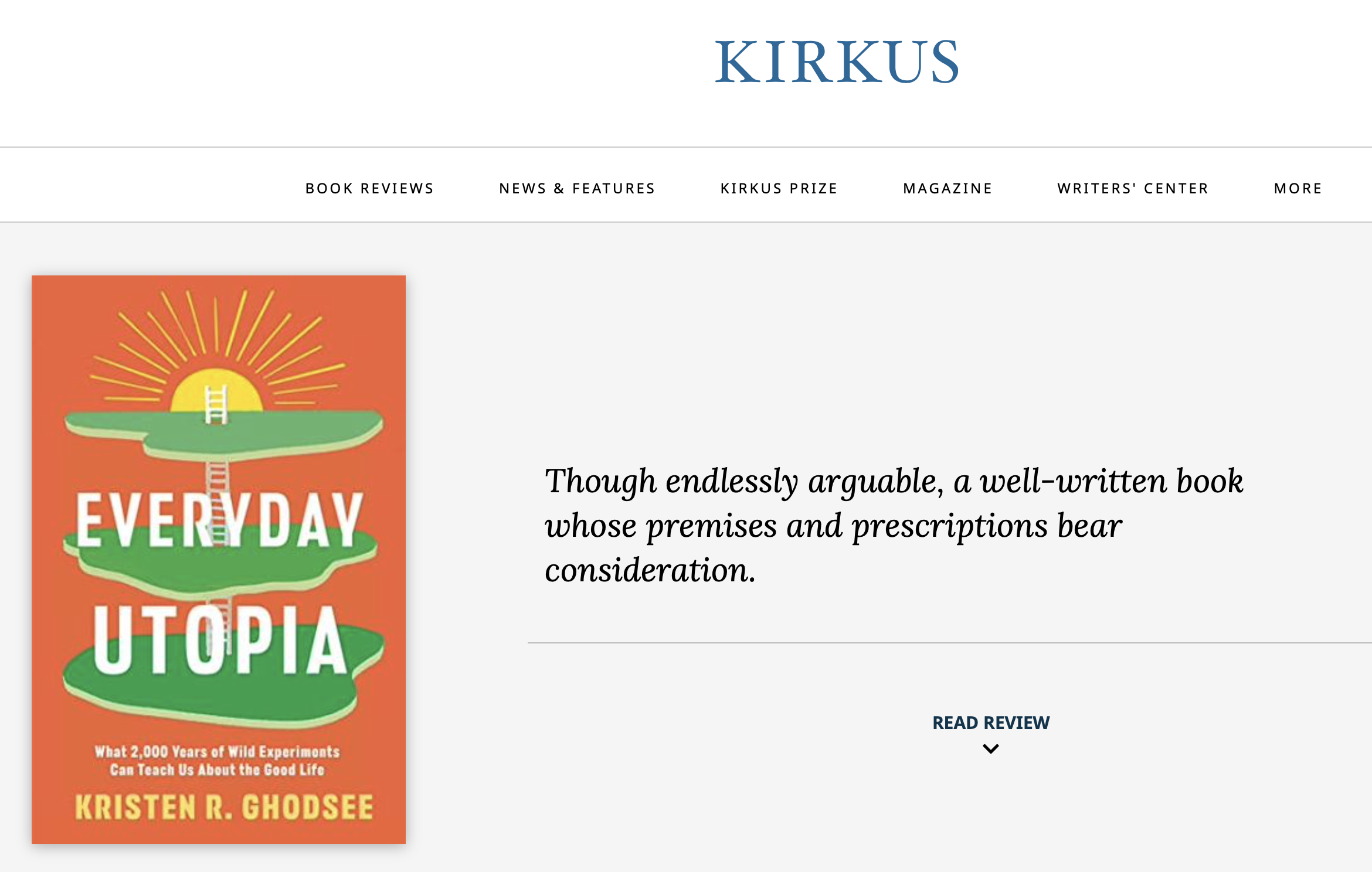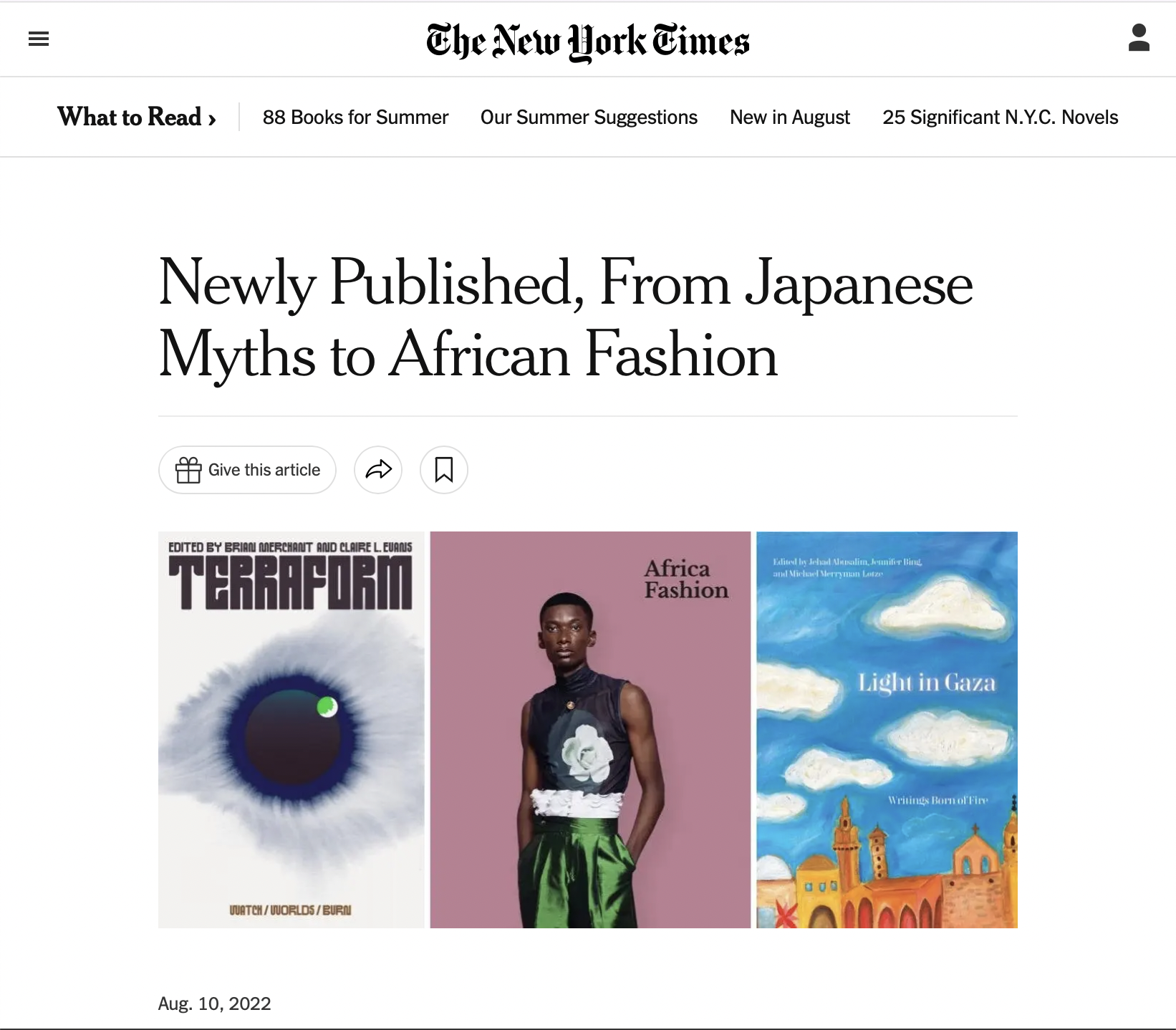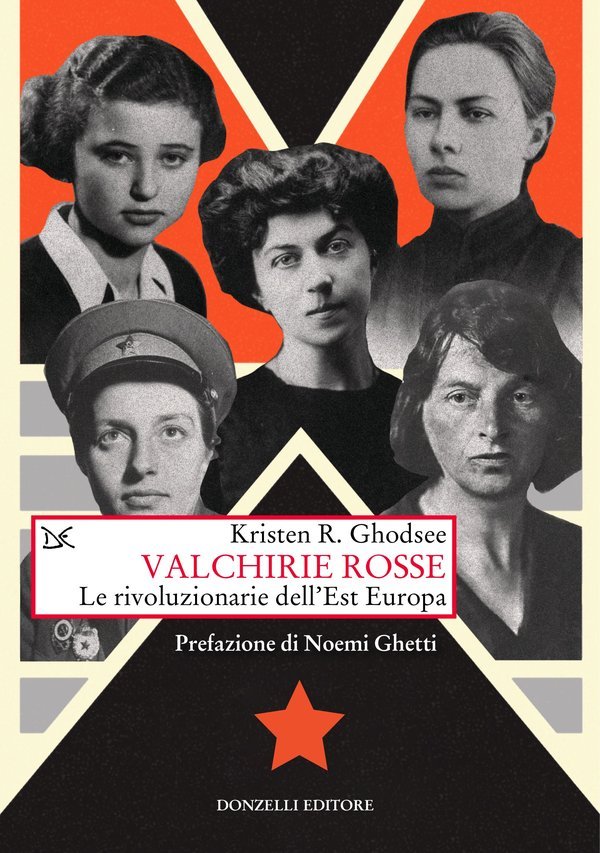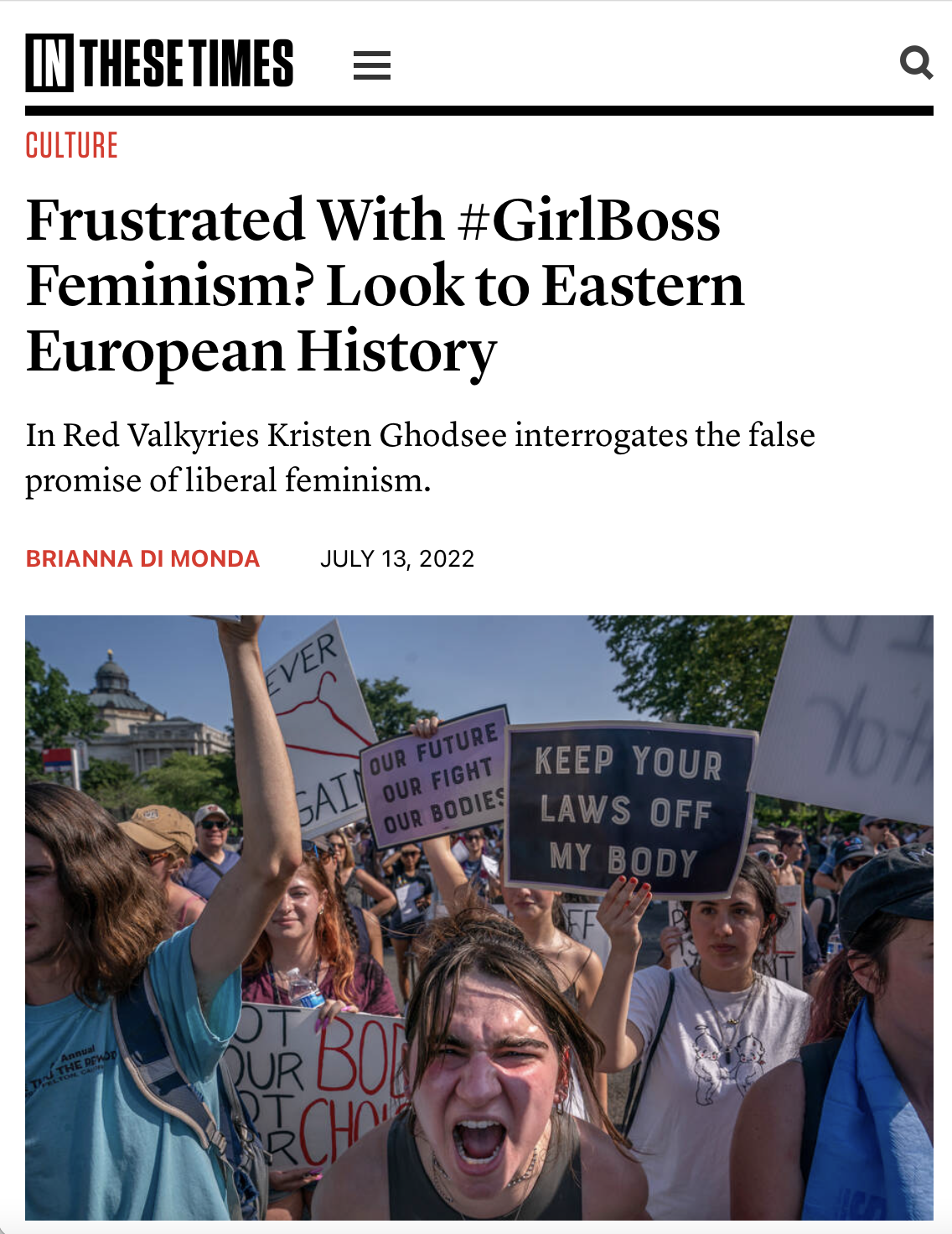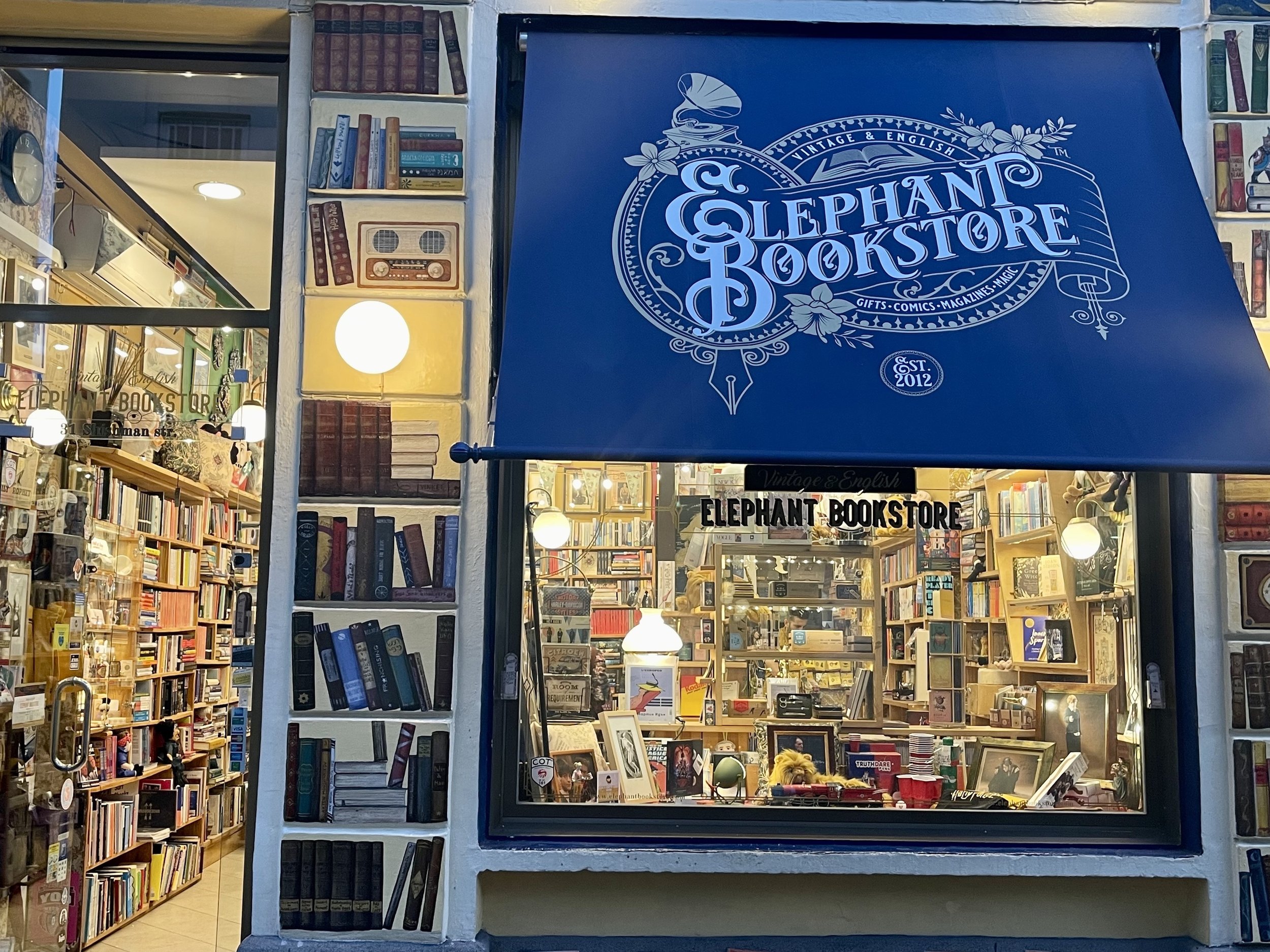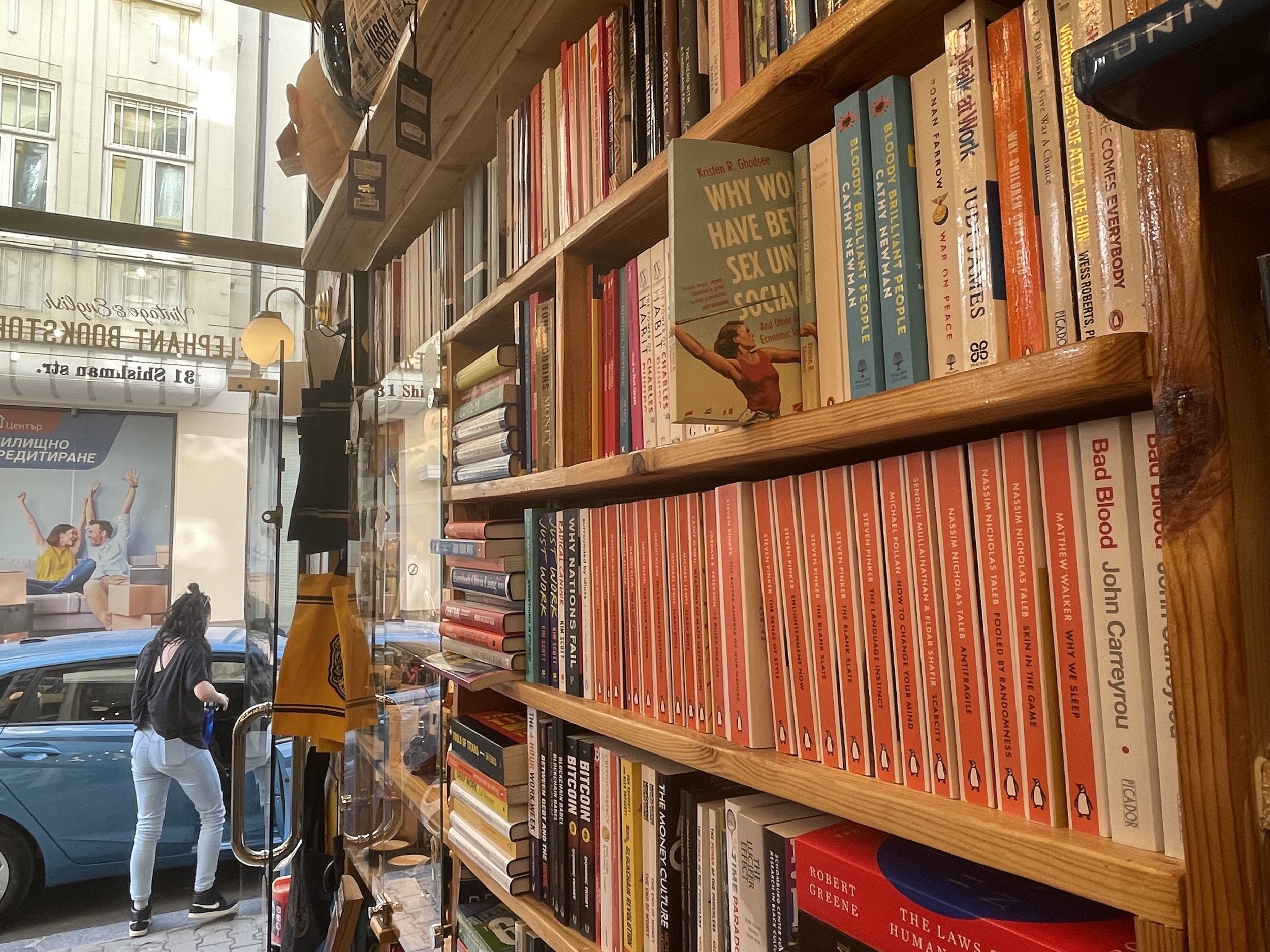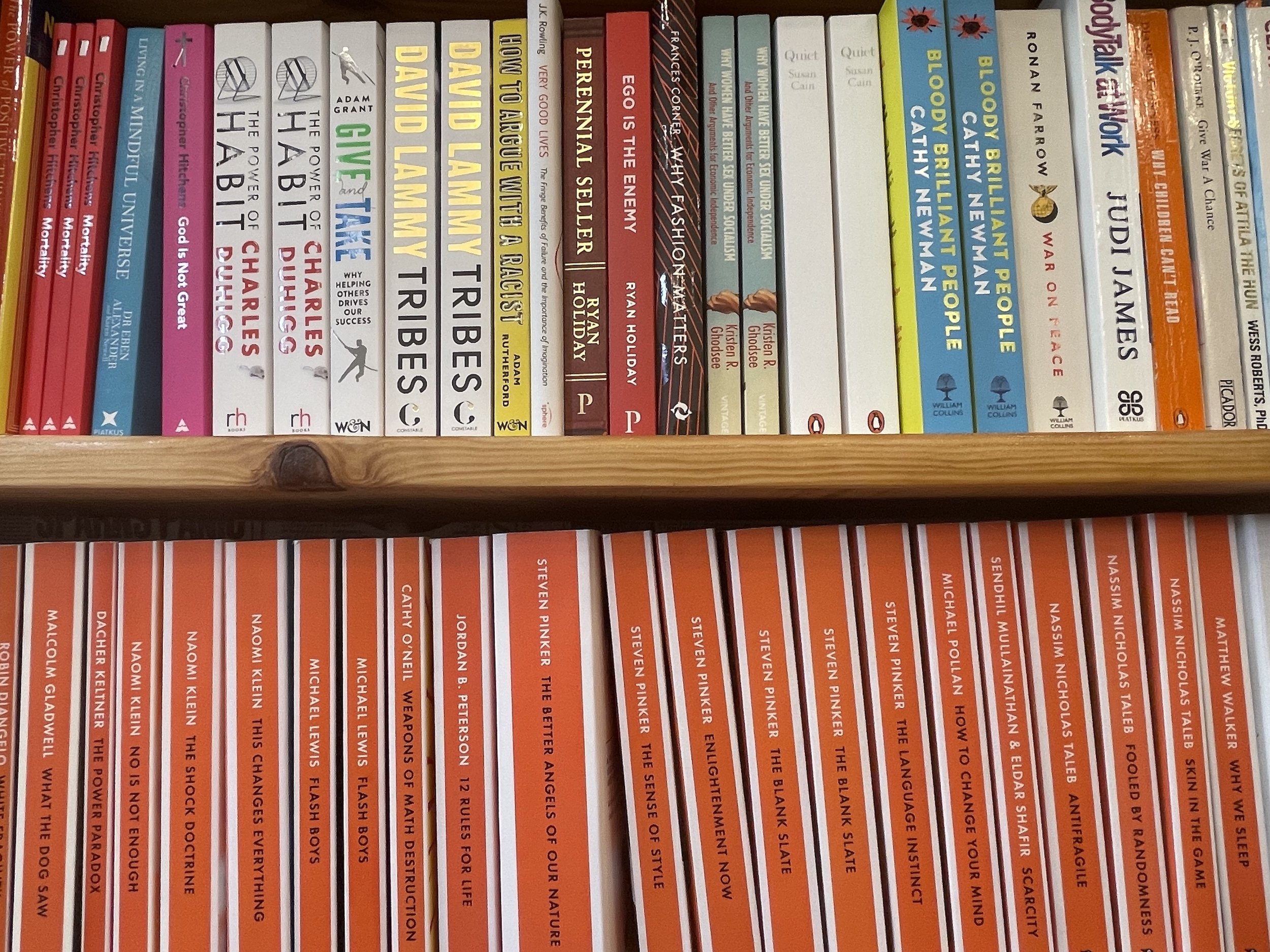preorder sale at Barnes & Noble – January 25-27, 2023 →
Three days only in the USA! Pre-order Everyday Utopia at Barnes & Noble and save 25%: use code PREORDER25
Red Valkyries hardback for ten bucks! →
Blurbs for Everyday Utopia: Thomas Piketty, Rebecca Traister, Ada Calhoun, Robert Waldinger, and Yanis Varoufakis
“My god, this book is what I need right now! Exhilarating, good humored, and forward looking, it’s blown open my brain. What a powerful reminder that dreaming of better worlds is not just some fantastical project, but also a very serious political one.”
—REBECCA TRAISTER, New York Times bestselling author of Good and Mad
“More could be possible than we imagine—that’s the liberating and inspirational message of Kristen Ghodsee’s sweeping feminist history of society at its most creative. What a gift she’s given us with this mind-broadening investigation into how for millennia our fellow human beings have reckoned with the toughest questions of fidelity, family, and love.”
—ADA CALHOUN, New York Times bestselling author of Why We Can't Sleep
“Kristen Ghodsee has boldly gone where few would dare to tread. In this warm, intelligent, and lucid book, she takes us on a deep dive into how people have created better systems for living—systems that actually work. With clear-eyed views of how utopian communities can promote human thriving, she offers hope in a time when we desperately need new ways of imagining the future.”
—ROBERT WALDINGER, Director of the Harvard Study of Adult Development and author of The Good Life
“Utopia is back! And it ought to be taken seriously, as history is made by the dreamers. If you want to open up new futures for our private lives, please have a look at this refreshing book. A must-read.”
—THOMAS PIKETTY, New York Times bestselling author of A Brief History of Equality
“Invigorating writing for a cheerless era. Having explained to us Why Women Have Better Sex Under Socialism, Kristen Ghodsee is back with another splendid insight: utopia can, and ought to, be an everyday thing, in every home.”
—YANIS VAROUFAKIS, former Greek Minister of Finance and author of Talking to My Daughter About the Economy
2023 reading challenge
I’m not usually a big fan of new year’s resolutions, but this year I have one that I am really going to stick to. I’ve decided that I need my brain to focus on one thing for long periods of time, and so I am committing to reading 25 fiction and 25 non-fiction books in 2023. That’s about a book a week and I am very excited to delve into the ever growing pile on my nightstand. This week I finished Celeste Ng’s Our Missing Hearts, a dystopian vision of a possible near-future USA. This book was chosen for one of the two book clubs I’ve joined to help keep me on track with my reading.
So happy to be included in this end of year list of "Top Reads" →
Winter Reading: The Marriage Portrait
So it’s been a while since I’ve posted any of my reading recommendations, and it’s not because I have stopped reading. It’s because all of my previous book posts featured my old hound dog, Daisy, who died last year. I simply could not bring my self to take a photo of a book without her. Now I have a nice big stuffed animal Basset Hound and I’ve decided to let it be a very poor substitute for Daisy, but to honor her memory. This month I devoured Maggie O’Farrell’s The Marriage Portrait for one of my two book clubs. It was a lusciously-written page-turner, and although I guessed the ending halfway through the book, it was still a satisfyingly fun read.
Video of my book talk at the People's Forum →
Media coverage in the Italian press.
Always excited to be in the New York Times! →
The Italian Version of Red Valkyries! →
On sale tomorrow : Valchirie rosse: Le rivoluzionarie dell'Est Europa
Prefazione di Noemi Ghetti
Traduzione di Mauro Pace
A new interview in In These Times about Red Valkyries →
“Frustrated With #GirlBoss Feminism? Look to Eastern European History,” In These Times, July 13, 2022
12 Must-Read Books of July in the Chicago Review of Books →
12 Must-Read Books of July in the Chicago Review of Books includes Red Valkyries: Feminist Lessons from Five Revolutionary Women
Spotted in Rombach Buchhandlung in Freiburg
A surprise in my local bookstore!
Staff Pick at McNally Jackson in New York →
The advances copies arrived today!
Spotted in the wild
So nice to see my book in the English language bookstore in Sofia.
Final cover jacket design for Red Valkyries!
This is the jacket for the hardback book coming out in July.
Even more amazing blurbs for Red Valkyries!
“Until the late 20th century, you could pay close attention in school, graduate from a prestigious university with a degree in history and still never find out who Harriet Tubman was. Outrageous, right? But due to capitalist ideology and Cold War hangover, you could still do all that and never learn about Alexandra Kollontai or Inessa Armand, or any of history’s great Communist women. Kristen Ghodsee’s riveting account of these complicated, imperfect and inspiring lives is an outstanding corrective to our miseducation, one that’s long overdue.”
—Liza Featherstone
“Funny and politically illuminating, Ghodsee writes with the clear-sighted directness of the revolutionary women she describes. Women’s sexual, political and daily emancipation were the eye of the socialist storm for Kollantai, Krupskaya, Armand and Lagadinova. Ghodsee’s book breathes new life into their stories of how to create a world without patriarchy.”
—Elizabeth Armstrong, Smith College
“Kristen Ghodsee’s new book is a well-documented and immensely personal guide to the 20th-century East European socialist women’s movement. The author extracts from silence and saves from oblivion five women who have made an attempt to change not only their own, personal history, but also political, social and cultural history of women in Europe and worldwide. It is a story about a communist revolution in which women played a significant role, creating and implementing the project of a better world for all people. Reflections on the past are not, however, used to celebrate it nostalgically, but to draw conclusions for the future – how to act to build an alternative to the hegemony of capitalism and nationalism. This well-written, passionate story about the “red Valkyries” shows that socialism is not a song of the past, but still valid and long-awaited response to the challenges of the present world. Ghodsee argues that the history is not over, but rushes forward. Speeding up, however, it needs signposts to avoid falling into the abyss. The Red Valkyries will be perfect for this role.”
—Agnieszka Mrozik, Institute of Literary Research of the Polish Academy of Sciences
And another blurb for Red Valkyries from Vijay Prashad! →
“A beautiful book about the intimate lives and bold ideas of a range of Communist women, people who built their revolutionary dreams into reality. Ghodsee lifts up the immense contradiction between the future-oriented social hopes of these revolutionaries, these exiles from the future, and the grip of the social conventions of the present.”

